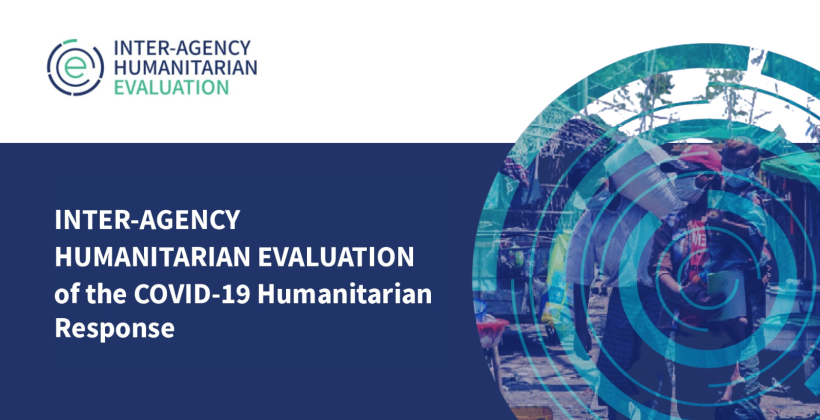
About the evaluation
The Inter-Agency Humanitarian Evaluation (IAHE) is an independent assessment
of the preparedness and response of Inter-Agency Standing Committee (IASC) members to the COVID-19 pandemic from 2020-2022.
It is the first-ever evaluation of the IASC’s humanitarian response to infectious
disease events and to a global response. The evaluation provides feedback on the human response to COVID-19, identifies best practices and lessons learned, and highlights strategic and policy challenges and opportunities to improve responses to global crises in the future.
The evaluation was conducted by KonTerra, in partnership with Itad. The evaluation team conducted 640 interviews; 169 focus group discussions that involved 510 men and 593 women and reviewed over 3,500 documents. Eight case studies were conducted in Bangladesh, Colombia, the Democratic Republic of the Congo, the Philippines, Sierra Leone, Somalia, Syria, and Turkey.
Key findings
- Despite being already overstretched, the humanitarian community expanded and adapted its programming to meet the needs of a vastly larger humanitarian caseload and provide a safety net for millions of people who would otherwise have gone without assistance.
- While international humanitarian actors rose to the occasion, the level of worldwide restrictions on international aid underscored the opportunity costs of humanitarian actors not having advanced long-sought reforms, particularly for more locally led humanitarian action and strengthening accountability to affected people.
- Greater progress in these important areas would have helped the COVID-19 humanitarian response to meet the needs of all vulnerable people more appropriately; expand the available capacities to deliver; more adequately prevent the risks of sexual exploitation and abuse and address the trust deficit with affected communities, which was so essential to the promotion of healthy behaviors to contain the pandemic.
Evaluation report and related products
The evaluation report is accompanied by an executive summary, and two learning
papers on the Global Humanitarian Response Plan (GHRP) process and the contribution of the COVID-19 response to localisation:

